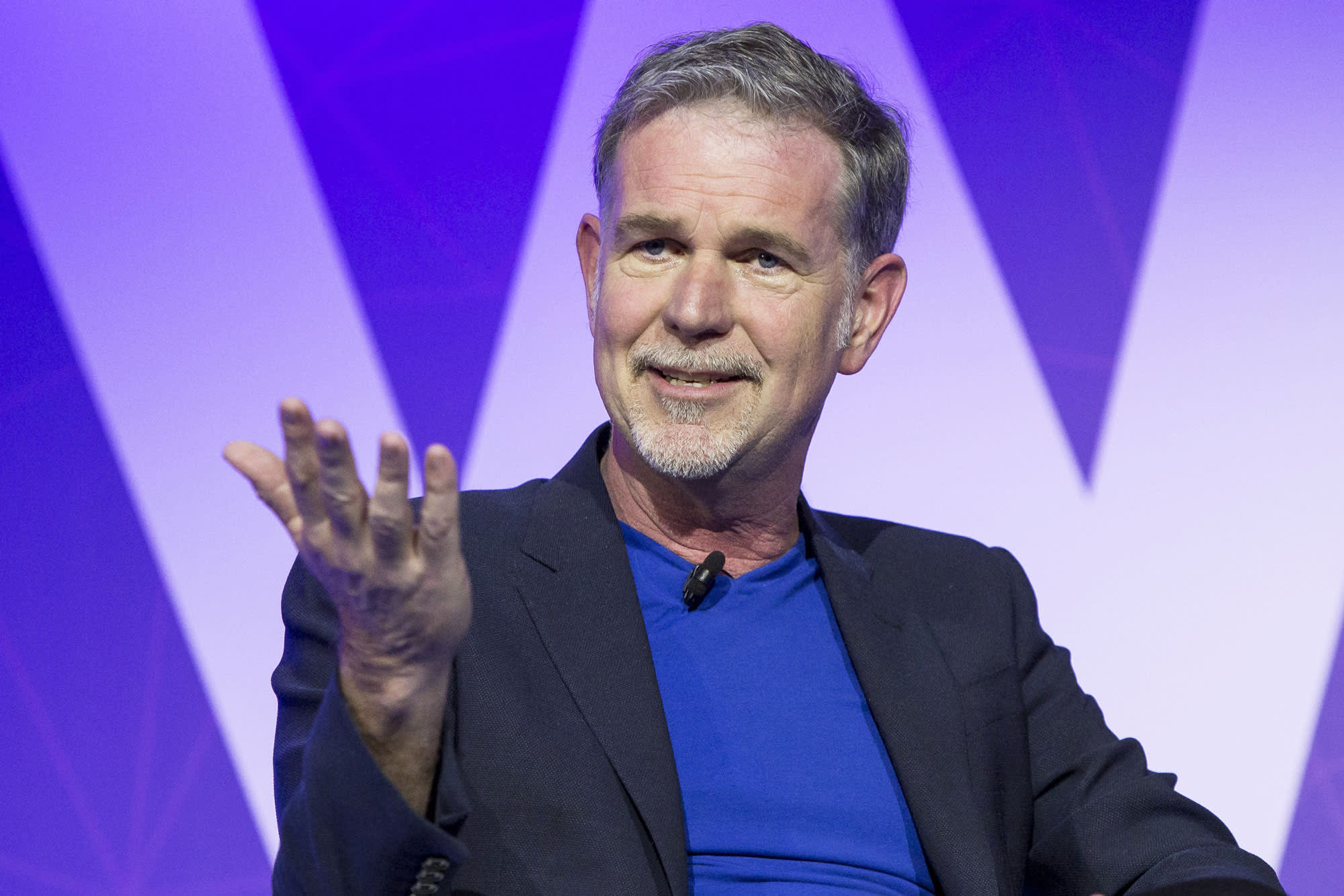Co-founder and CEO of Netflix Reed Hastings
Albert Llop | Anadolu Agency | Getty Images
The best way to defeat an enemy is to make him your friend.
Netflix said today in its third-quarter earnings letter to shareholders that it welcomes upcoming competition from Apple, Disney, Comcast‘s NBC Universal, AT&T‘s WarnerMedia and others set to launch new streaming services. While their introductions may be “noisy” leading to “some modest headwind” to near-term growth, Netflix argued the overall effect will be beneficial because it will cause more people to abandon traditional methods of watching television for a bundle of streaming products, of which Netflix will be at the core.
“In our view, the likely outcome from the launch of these new services will be to accelerate the shift from linear TV to on demand consumption of entertainment,” Netflix wrote.
“Just like the evolution from broadcast TV to cable, these once-in-a-generation changes are very large and open up big, new opportunities for many players. For example, for the first few decades of cable, networks like TBS, USA, ESPN, MTV and Discovery didn’t take much audience share from each other, but instead, they collectively took audience share from broadcast viewing.”
In other words, there’s no point in fearing Disney+ or HBO Max or Peacock as competitors, Netflix said. Rather, streaming services should be seen as an eventual replacement for traditional pay-TV, and consumers will watch them all in ever-growing numbers. Just as cable networks took share from the major broadcast networks, streaming services will take share from cable.
What’s unsaid is that Deloitte estimates the typical U.S. consumer subscribes to three streaming video services, with 43% of consumers also subscribing to a traditional bundled package of live channels. It’s quite possible that tens of millions of consumers, at least for a while, are fine holding on to their traditional bundle of cable channels while supplementing with a small number of streaming services.
Further, traditional linear TV offerings have actually helped Netflix subscriber growth in recent years. Comcast’s X1 platform, for example, integrates Netflix into the set-top box, allowing traditional linear TV watchers to also subscribe to Netflix without switching applications.
If the destruction of the cable bundle stalls, or doesn’t happen quickly, the streaming wars will seem more like war — with certain products becoming essential additions to a bundle of live channels while others don’t make the cut because their content is viewed by consumers as less essential.
But if Netflix is right, streaming will eclipse traditional linear TV, and CEO Reed Hastings will feel comfortable that his company is an essential part of that transition. Netflix announced Wednesday it had about 164 million global subscribers after adding 6.8 million new paying customers in the third quarter.
“Over the next 10 years, many streaming services will grow viewing as streaming replaces linear TV,” Netflix wrote.
So come join the party, everyone. The water’s warm. At least until Netflix’s subscriber growth suggests otherwise.
Disclosure: Comcast owns NBCUniversal, the parent company of CNBC.
WATCH: The Streaming Wars: Apple, Disney and others ready for battle against Netflix
